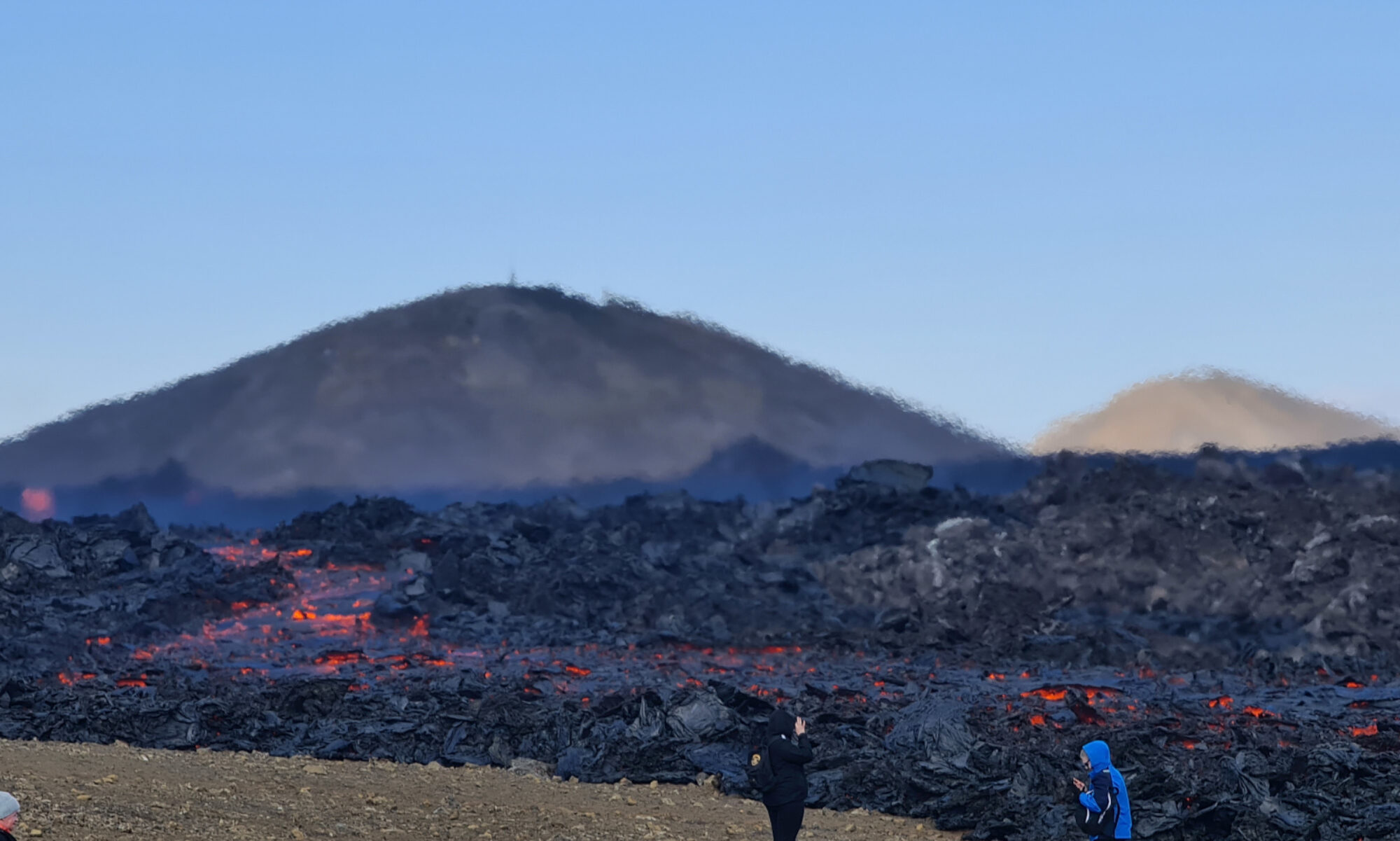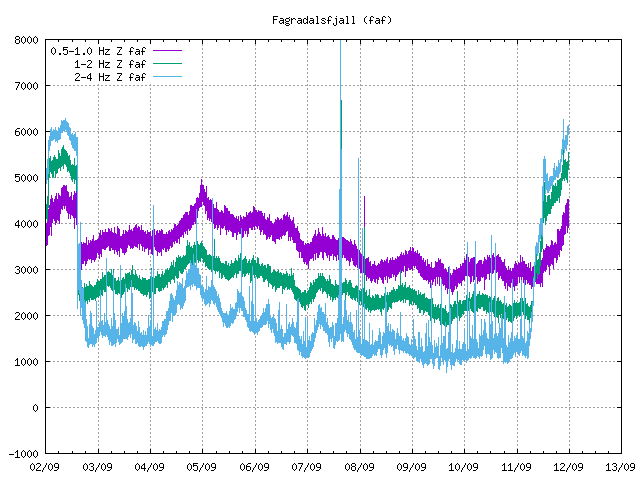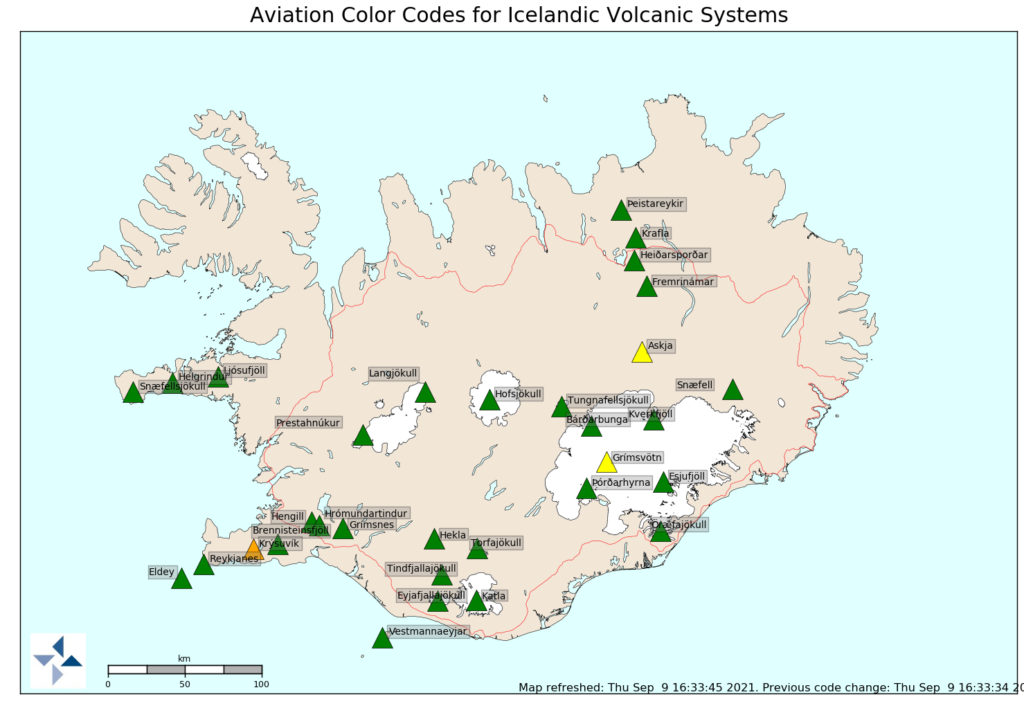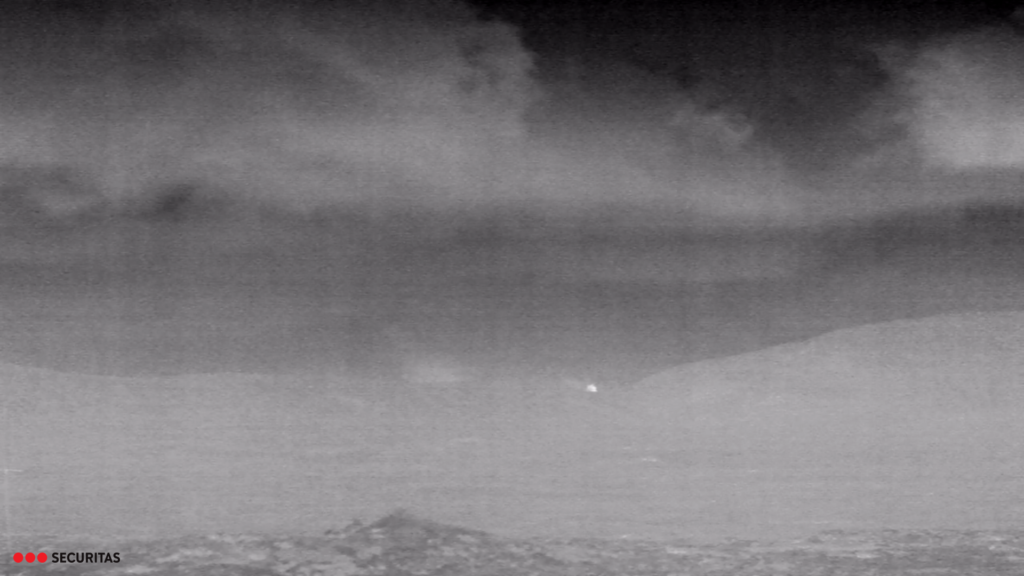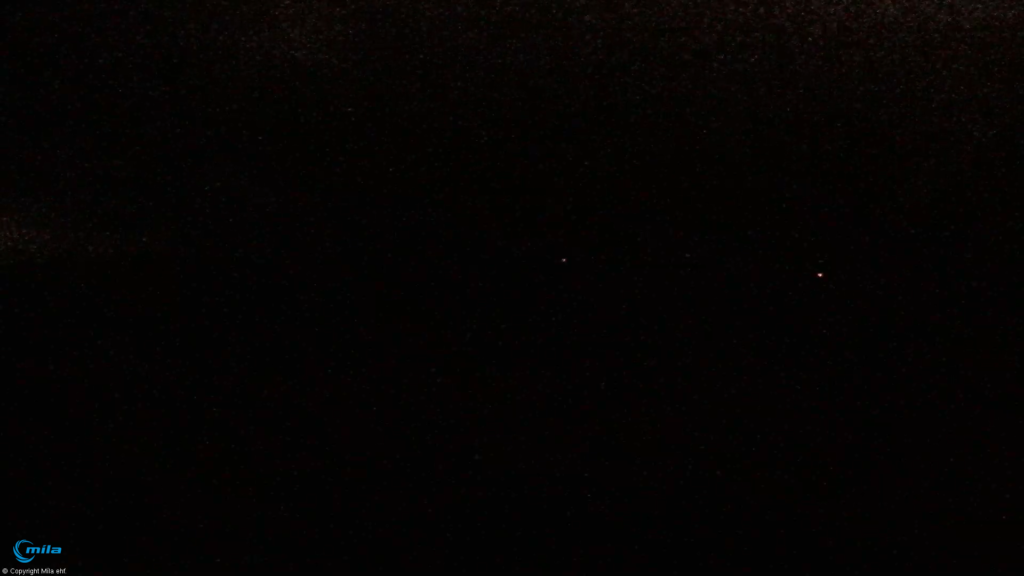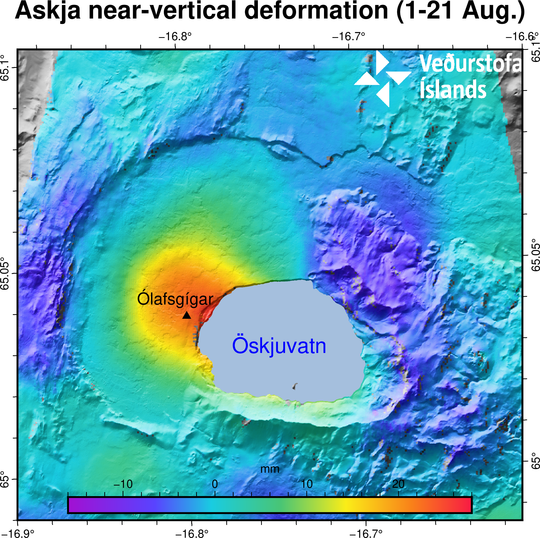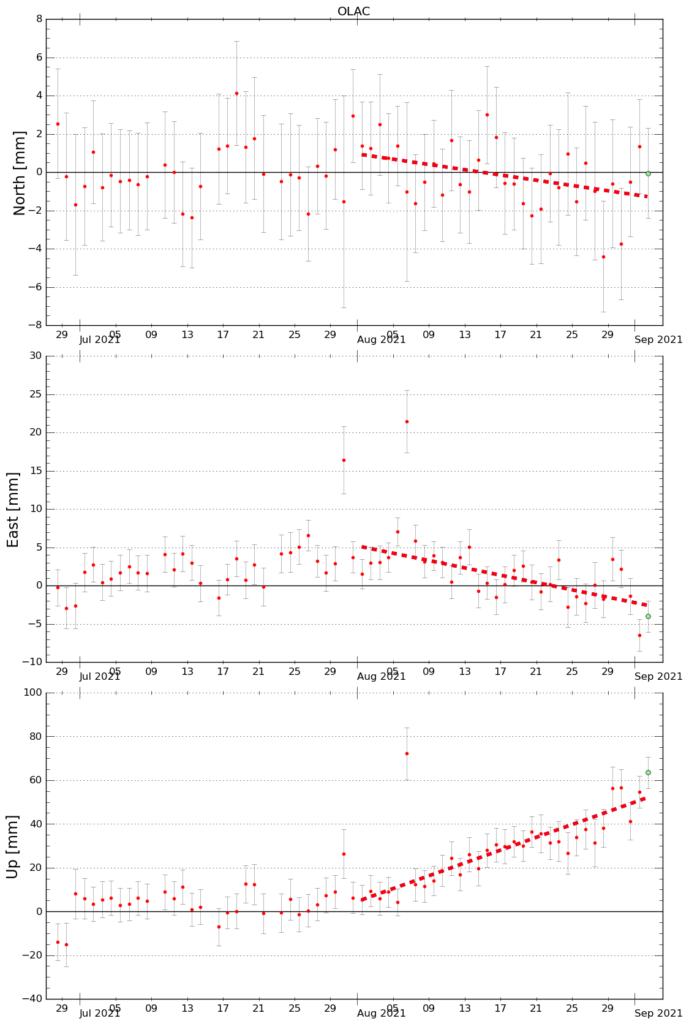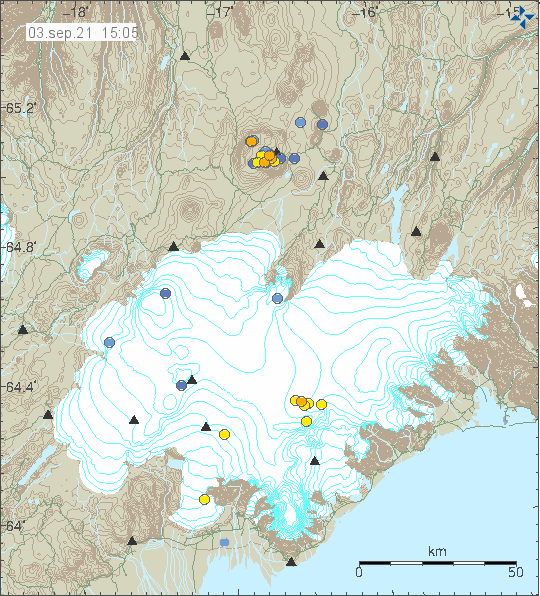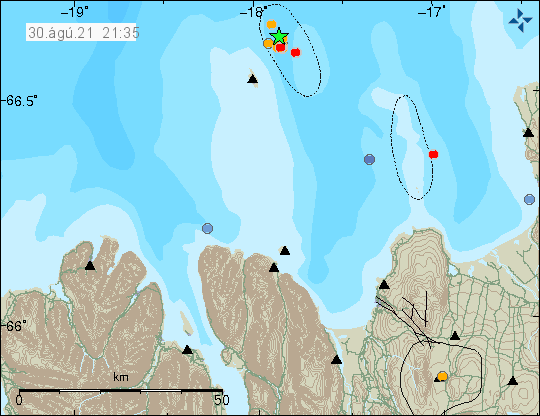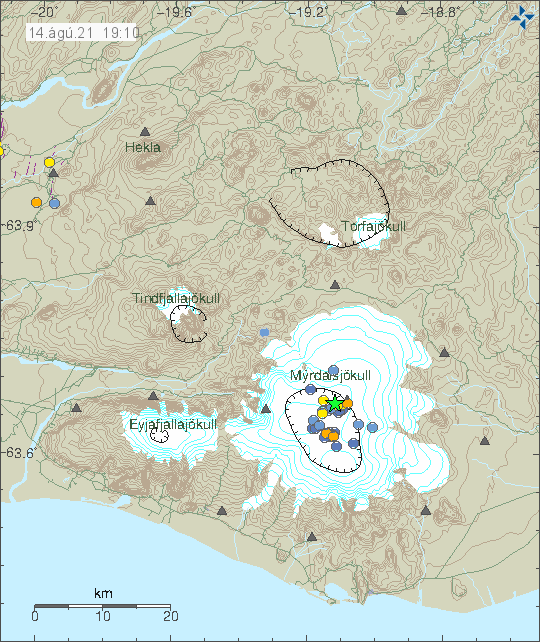Yesterday (15-September-2021) around 11:10 UTC a large lava cave just south of the crater in Geldingadalir had a roof collapse in a small area or a lava breakup in the surface. This resulted in the lava flow down Geldingadalir into Nátthagi. The flow covered Geldingadalir in less than 20 minutes. After that it did reach the barrier that stops it from going into Nátthagakriki, if that happens both walking path A and B are going to get closed forever or having to be redrawn from their current locations. Lava down that path also allows the lava flow to go in the direction of Grindavík town and nearby roads.
The lava flow yesterday did go down into Nátthagi but didn’t get far into there compared with the older lava it was flowing on top of. This sudden lava flow did put people in danger and shows that the lava field is full of dangerous caves that can collapse or burst open at any time without any warning. The lava flow that started yesterday is ongoing best to my knowledge. But the view has been limited due to fog and bad weather in Fagradalsfjall mountain this evening.
One or two idiots where seen walking on the crater rim yesterday and I think this are the same people that Icelandic coast guard had to transport from Gónhóll since they where unable to get back because of the new lava flow that had happened when they where there.
The crater is now ~334 meters above sea level high. Currently the crater is now growing in height but that can change without warning.
Pictures of this new lava flow are on social media. I can’t use them because of copyright but if searched they can be found and viewed. There are also some amount of videos of this lava flow on YouTube.
Fagradalsfjall mountain is part of Krýsuvík-Trölladyngja volcano system.
Added 10-January-2022
This article can be found in Spanish here.
